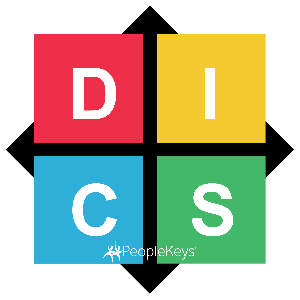- SHOP BY PRODUCT
- DISC TRAINING & CERTIFICATION TOOLS
- DISC RESOURCES
- BLOG
- SHOP BY PRODUCT
- DISC TRAINING & CERTIFICATION TOOLS
- DISC RESOURCES
- BLOG
- ALL ITEMS



It doesn’t matter what grade a student is in, middle school, high school, and college-aged kids can all have serious trouble adjusting to the demands of a new academic year. With most schools returning from summer break within the last few weeks, many students might be struggling to find the motivation to tackle their studies with energy and enthusiasm. So what can you do to help? Goals.
With learners of all ages, research has shown that goal-setting exercises performed at the beginning of the school year can have a profound impact on future academic success. Having clearly defined, attainable goals lets students see the “big picture” and prevents them from drifting aimlessly through the school year. When students set and work towards specific goals, it can improve:
When students can see a clear path to a specific goal, it stimulates their competitive drive and increases their desire to achieve.
Goal setting gives students the ability to set benchmarks that can be used to clearly measure their own progress. When students think not only about a goal but also about the best ways to achieve that goal given their personal needs, strengths, and limitations, it gives the student an awareness of what they need in order to be successful. This is a skill that is valuable not only in school but throughout that person’s entire professional career.
Students take great pride and satisfaction in accomplishing goals. It gives them reassurance that hard work is rewarded with success and that they are capable of achieving great things. The more self-confidence a student has, the more willing they are to take on future challenges.
Some students find it difficult to care about grades. When students work towards an academic goal rather than a specific letter grade, the skills they need are much more tangible, manageable, and easier to practice. Improved grades are a natural by-product of increased motivation, academic self-confidence, and individual self-awareness.
With schools only recently back in session, now is the perfect time for students to sit down and assess their goals for the upcoming year. When students set academic goals, however, it is important to keep those goals small, specific, and easily measurable. An unmeasurable goal, like “do your best,” is unlikely to improve a student’s focus, since no specific skills are being targeted.
Goals should be written down in order to make them more meaningful to the student. If students have several goals in mind, they should prioritize those goals in order to prevent them from feeling overwhelmed and unfocused. Be sure that all of the goals on a student’s list are completely within the student's control and not dependent on unmanageable outside forces. Most importantly, although guidance is helpful, students must take charge of setting their own goals. This will give the student a crucial sense of personal responsibility and ownership over their progress.
Remember, too, that goals can be taken step-by-step throughout the school year. Encourage students to measure their progress, re-assess, and refine their goals throughout the entire year, not just when school ends in June. And don’t despair! When a student fails to reach a goal, it’s much less problematic than never setting a goal in the first place. No matter what the final outcome, all students will benefit from careful thought about their goals and performance.
If you have a student that is in need of help with goal setting and academic performance but doesn’t know where to start, PeopleKeys offers a wide variety of tools in their StudentKeys family of products. This includes a Goal Setting Workbook and a corresponding Goal Setting Leader’s Guide, both perfect for setting students off on the right path this academic year.

© PeopleKeys. All Rights Reserved
WORKING DAYS/HOURS
Mon - Fri / 8:30AM - 5:00PM EST
